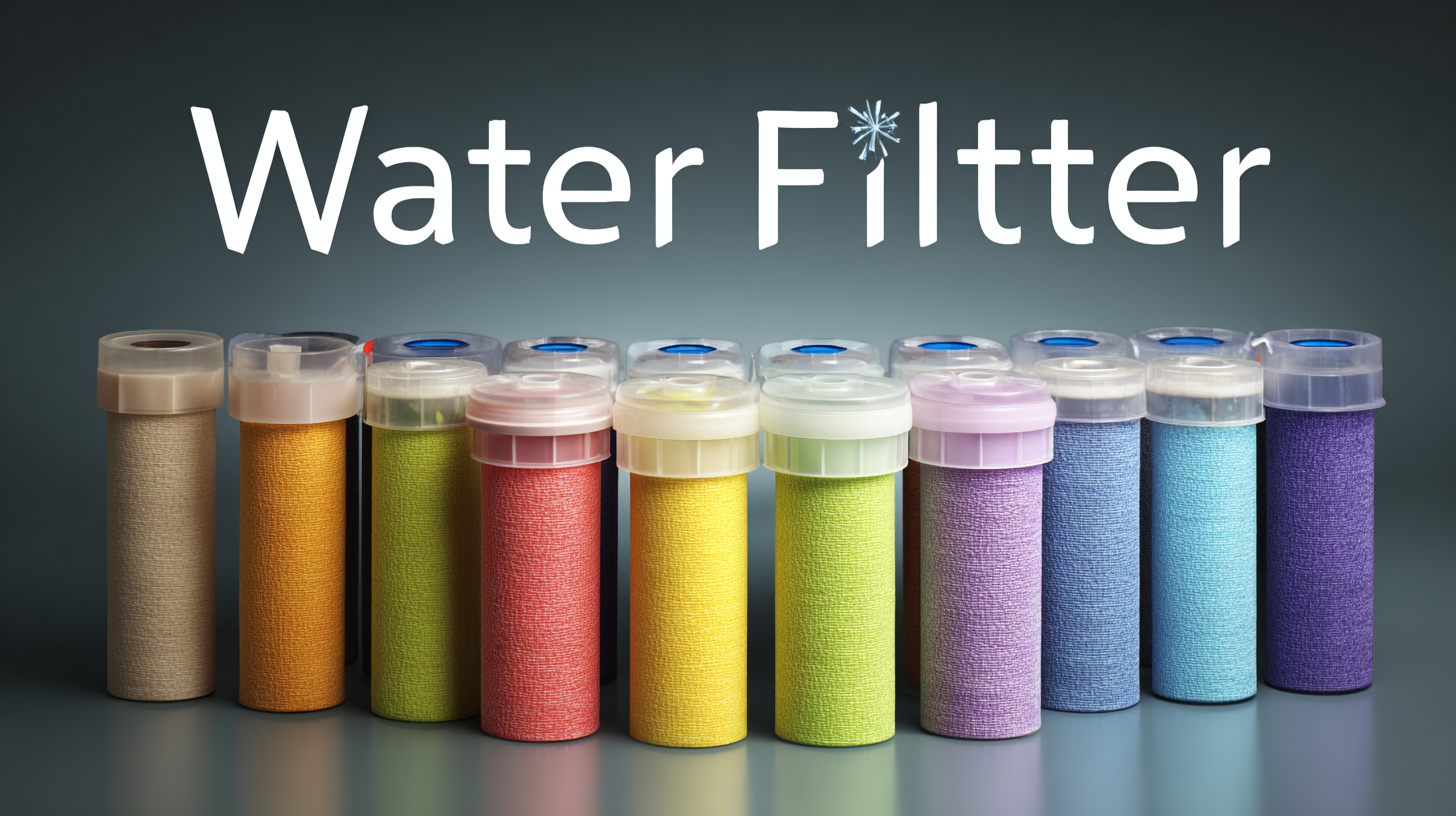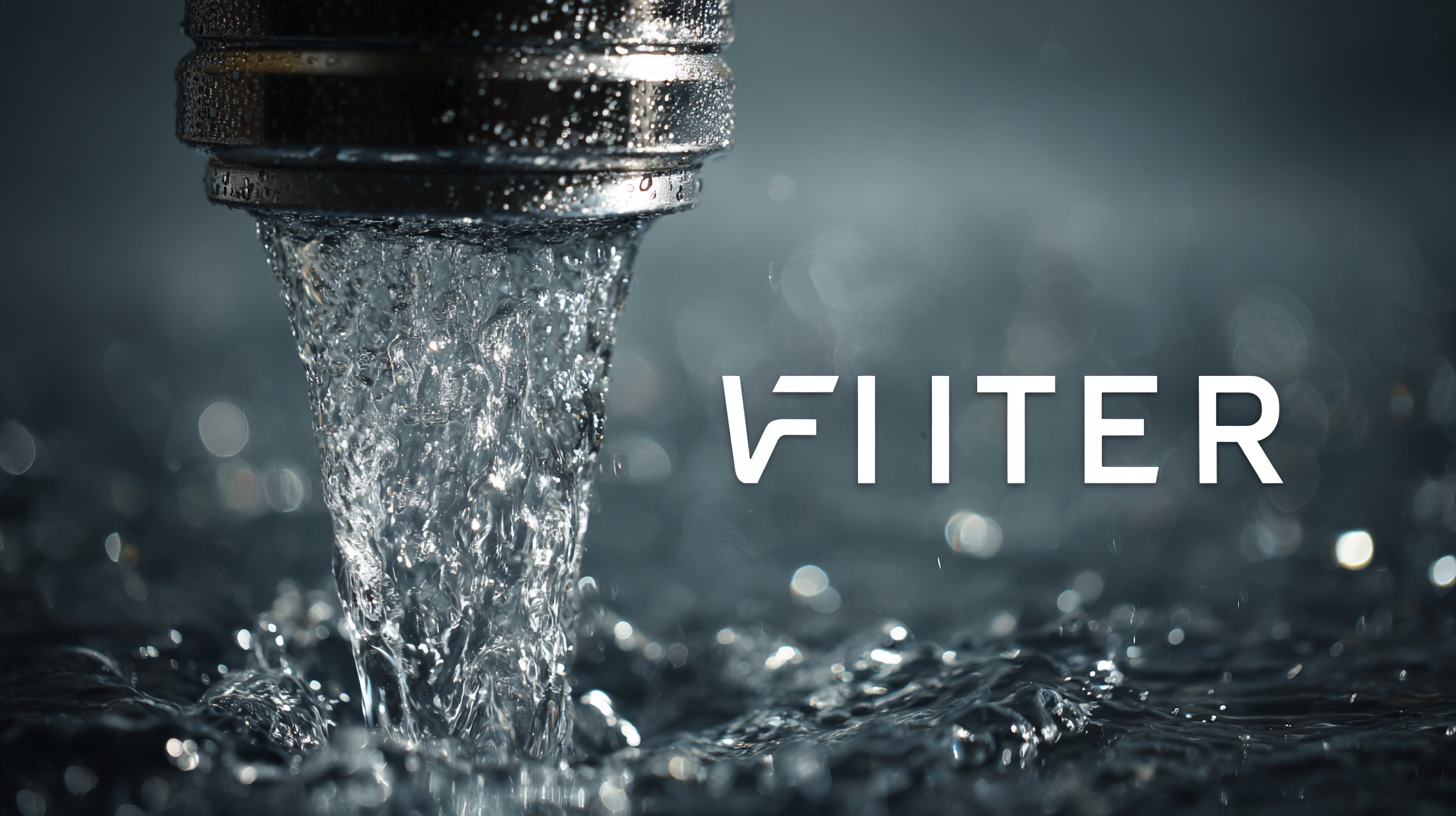
Ultimate Checklist for Choosing the Best Water Filter Based on Industry Insights and Data
In an era where clean drinking water is pivotal for health and well-being, selecting the right water filter is crucial. According to a report by the Water Quality Association, an estimated 50% of American households utilize some form of water treatment system, highlighting the growing awareness of water quality issues. With contaminants such as lead, chlorine, and bacteria posing significant health risks, the demand for efficient water filters has surged. Industry data from the Environmental Protection Agency indicates that water quality issues are prevalent, with approximately 13% of community water systems failing to meet safety standards. Therefore, understanding the various types of water filters—ranging from activated carbon to reverse osmosis—is essential for consumers seeking the best protection for their families. This ultimate checklist will guide you through the critical factors to consider when choosing the most effective water filter tailored to your specific needs.

Understanding Your Water Quality: Key Factors to Consider
When choosing a water filter, it is crucial to understand your water quality. Different factors can significantly impact the effectiveness of a water filter. The presence of contaminants such as heavy metals, chlorine, and bacteria should be assessed. Regular testing of water quality can help identify specific needs, guiding you towards the right filtration system for your household.

Tips: Always check for certifications like NSF/ANSI standards, which ensure the filter meets rigorous performance criteria. Additionally, consider the filter's maintenance requirements, as frequent replacements can increase overall costs.
Water availability and safety are pressing issues worldwide, with a recent study projecting that up to 5.5 billion people may be affected by surface water pollution by 2100. Given these alarming statistics, selecting the right water filter is more important than ever for health and safety.
Tips: Look for water filters that target specific contaminants you may have in your water. Research brands that offer transparent data and testimonials regarding their filtration processes to ensure you are making an informed decision.
Different Types of Water Filters: Pros and Cons of Each
When choosing the best water filter, it's crucial to weigh the pros and cons of different types available on the market. A commonly favored option is the activated carbon filter, which excels in removing chlorine, sediment, and volatile organic compounds (VOCs) from tap water. According to a recent industry report, activated carbon filters can reduce contaminants by up to 99%, significantly improving taste and odor. However, they require regular replacement to maintain effectiveness, which can be a drawback for some users.
Another popular choice is reverse osmosis (RO) systems, known for their high level of filtration. These systems can remove a wide range of contaminants, including heavy metals and bacteria, making them ideal for areas with compromised water quality. Data shows that RO systems can achieve removal rates as high as 95% for lead and 99% for arsenic. On the downside, RO systems can waste considerable amounts of water during operation and may require additional filtration stages to enhance taste.
Each type of water filter has its distinct advantages and limitations, making it essential for consumers to assess their specific needs and local water quality before making a decision.
Essential Features to Look for in a Water Filter System
When selecting the best water filter system, certain essential features should be at the forefront of your decision-making process. First and foremost, consider the filtration technology employed by the system. Advanced filtration methods, such as reverse osmosis and multi-stage purification, are crucial in ensuring that harmful contaminants—like bacteria, viruses, and microplastics—are effectively removed. In an era where water quality concerns are increasingly prevalent, investing in a purifier with proven technology is key to safeguarding your family's health.
Additionally, versatility in temperature options is becoming more important. The demand for hot and cold purified water is on the rise; systems that offer this feature can provide immediate relief during hot summer days or comfort during colder months. Furthermore, smart features such as filter life indicators and maintenance alerts can enhance usability and reduce the likelihood of neglecting essential updates. Lastly, pay attention to the design and maintenance requirements of the system, ensuring it blends seamlessly into your home and is convenient to care for, making it a practical choice for any household.
Evaluating Cost vs. Performance: Making Your Investment Count
When investing in a water filter, evaluating cost versus performance is crucial to ensuring you get the most out of your purchase. High price tags don't always guarantee superior filtration and often, budget-friendly options can deliver comparable results. Begin your assessment by reviewing the certifications and testing data provided by manufacturers. Look for filters that meet industry standards and effectively remove contaminants specific to your local water supply.
Furthermore, consider the long-term operational costs associated with each filter. Some systems may have lower upfront costs but require expensive replacement cartridges or frequent maintenance that can add up over time. Conversely, higher initial investments might come with longer-lasting filters or lower ongoing expenses. By analyzing the lifespan, replacement frequency, and overall efficiency, you can determine which option provides the best value for your health and wallet. Making informed choices based on this balance will help you choose the best water filter that meets both your needs and budget.
Ultimate Checklist for Choosing the Best Water Filter Based on Industry Insights and Data - Evaluating Cost vs. Performance: Making Your Investment Count
| Filter Type | Average Cost (USD) | Filter Lifespan (Months) | Contaminants Removed | Performance Rating (out of 5) |
|---|---|---|---|---|
| Carbon Filter | $50 | 6 | Chlorine, Sediments | 4.5 |
| Reverse Osmosis | $200 | 24 | Heavy Metals, Fluoride | 4.8 |
| UV Filter | $100 | 12 | Bacteria, Viruses | 4.7 |
| Ceramic Filter | $30 | 12 | Bacteria, Sediments | 4.2 |
| Ion Exchange | $75 | 6 | Hardness, Metals | 4.1 |
Consumer Reviews and Expert Recommendations: What to Trust
When selecting a water filter, navigating through countless consumer reviews and expert recommendations can be daunting. According to a recent industry report by the Water Quality Association, over 60% of consumers rely on peer reviews when making decisions about water filtration systems. This statistic underscores the importance of trusting credible sources. Many top-rated water filters boast features like multi-stage filtration and certification by organizations such as NSF International, which validates that products meet rigorous health and safety standards.

Expert insights also play a crucial role in the decision-making process. A study by the Environmental Protection Agency (EPA) revealed that certain contaminants, such as lead and chlorine, are prevalent in municipal water supplies, highlighting the need for effective filtration. Experts often recommend filters that not only reduce these harmful substances but also have high flow rates and long filter lifespans. For instance, reverse osmosis systems typically receive high marks from professionals for their ability to remove impurities while providing great-tasting water.
By balancing consumer experiences with expert recommendations, individuals can make informed decisions when choosing the best water filter for their needs.
